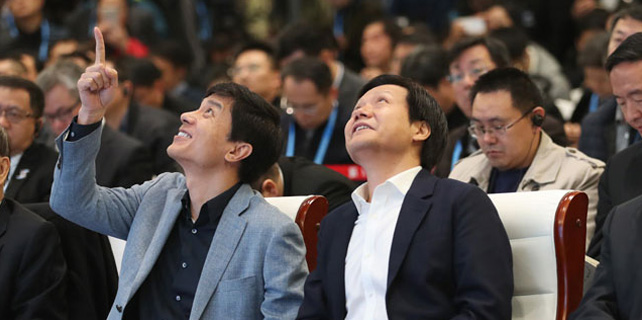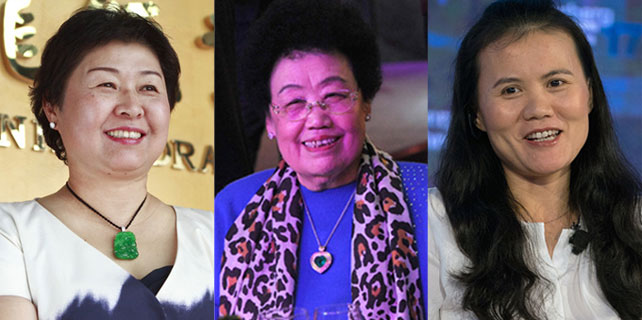The changing face of China-Africa relations
The true nature of the interaction between the two sides needs to be told - and we need to be better at telling it
The relationship between China and Africa is one that generates immense interest and debate. Strengthening economic growth in both China and Africa, particularly in the context of an increasingly insular United States and Europe, means that the relationship between the two sides will play an increasingly important role in their development and in global dynamics. There are three factors to consider as we unpack Sino-African relations.
First is the leadership of China, where President Xi Jinping is redefining his country's presence on the global stage. In the context of the trade spat between the US and China, Xi continues to emphasize China's commitment to globalization and free trade, perhaps best demonstrated in his massive Belt and Road Initiative. In early April, Xi restated his commitment to continue to open up the nation's economy, affirming that China will open its doors wider to foreign investment.
While some may argue that the country's economy remains very protected in some ways, what is clear is that Xi is positioning himself as a global leader and one who encourages global cooperation, both economically and diplomatically. Whereas in the past it seemed China was happy being a leading economy but not necessarily a leading voice in global interactions, Xi is redefining how China positions itself globally. As Europe and the US turn inward, China continues to look outward and seeks to lead global conversations.

The implications for Africa in this regard are that the continent can expect initiatives under Xi to deliberately foster deeper collaboration and cooperation. These will not only be from an economic standpoint, but politically and militarily as well. Geopolitical dynamics in Africa will be informed by a leadership in China that seeks to strengthen its global presence and reputation, and Africa will be an important party to how this plays out globally.
Second, and linked to the point above, Xi is actively rebranding China. Brand China has both positive and negative elements. The key negative elements, particularly with regard to Brand China in Africa, are that China has had problems with corruption and environmental damage. It seems China is aware of these negative elements of its brand because the two sessions (the annual gatherings of the National People's Congress and the Chinese People's Political Consultative Conference) addressed both these issues. A key focus was to ratify a law to set up a powerful new anti-corruption agency.
Africa's struggle with corruption is a well-known fact. Thus, the announcement of steps that will be taken to stem corruption in China may have an impact on Africa in the form of new rules and requirements linked to Chinese funding.
The two sessions also revealed the growing importance of environmental concerns as a government priority in China. This seems to stem not only from an understanding in the Chinese government that environmental degradation must be addressed as a strategic concern for the country and economy, but also as a response to growing demands from the Chinese public for responsible environmental behavior and action as part of the country's development model going forward. Again, it will be interesting to see if this shift will be reflected in how the Chinese government interacts with Africa. The point is that Xi's administration is taking clear and bold steps to address the negative aspects of the country's brand as he seeks to position China as a powerful and responsible global leader.
Finally, as China continues to strengthen economically, and as Xi strengthens China's global influence, we will likely see a heightening of Sinophobic narratives on China's presence in Africa, by Europe and North America in particular. One key feature of Euro-American analysis of China in Africa has been notable Sinophobia; and we have seen an evolution in this Sinophobic commentary. The narrative started with Europe and North America warning Africa that China is the new colonial power and that it will subjugate Africa with colonial-like behaviour that will undermine Africa's sovereignty. This then shifted to Africa being warned that China only wants to exploit the continent's natural resources in a rapacious relationship that will suck the continent dry. This was coupled with accusations that China facilitates and participates in corruption in Africa, that Chinese investment has poor social and environmental standards, and indeed kills the continent's environment in the form of unregulated pollution and destruction of wildlife. Now, the narrative is that China is saddling Africa with unsustainable debt and seeks to use indebtedness to further its geopolitical control over the continent. China should expect more aggressive Sinophobic commentaries coming out of Europe and North America as an ideological battle is waged for African hearts and minds.
However, despite the fact that the Sinophobic narrative will continue to be generated by Europe and North America, the reality is that China is not good at communications. China does not do a good job of sharing its contributions to Africa's development in a strategic and sustained manner, both inside and outside Africa.
Whereas Europe and North America have sophisticated communications strategies, both in the government and private sectors, the same cannot be said for China. Both the Chinese government and private sector ought to be cognizant of these dynamics and generate positive counter-narratives on China's presence in Africa. Africans also ought to be aware of the ideological battle on the continent and generate informed narratives that analyze China-Africa relations from an African perspective.
The author is a development economist.
The views do not necessarily reflect those of China Daily.
(China Daily European Weekly 05/11/2018 page12)






















